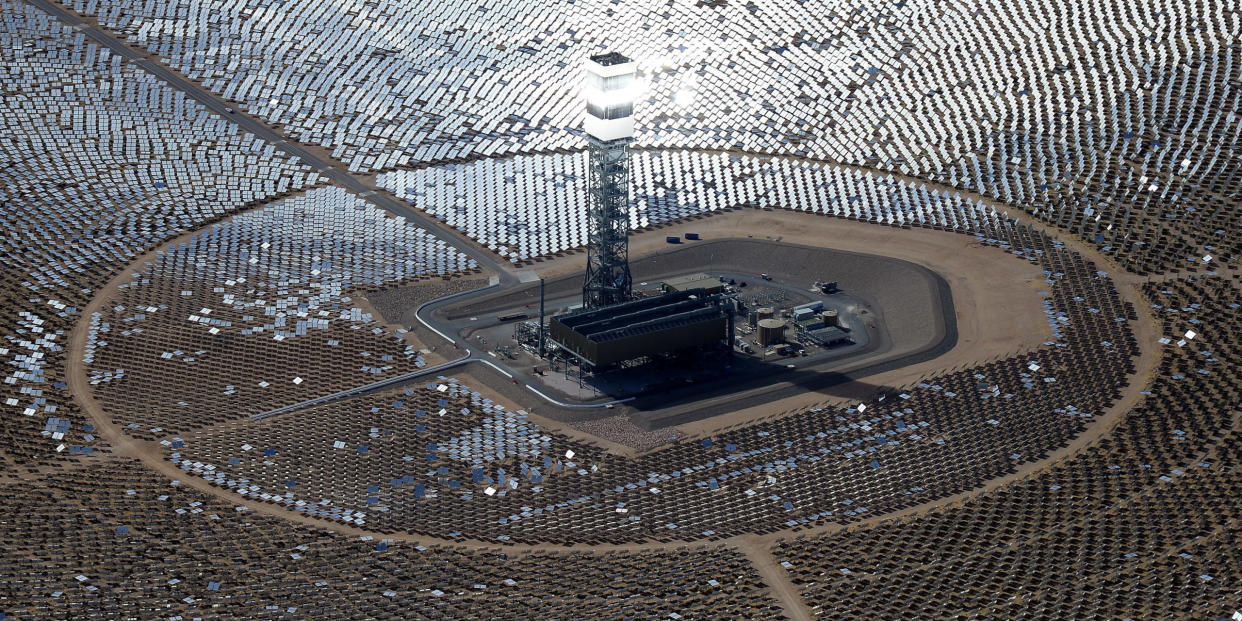South Australia to Build an Enormous Solar Thermal Plant

Australia is going all in on renewable energy. Recently, the government of South Australia made a deal with Elon Musk to build the world's largest battery storage facility, and now they're planning to construct a gigantic solar thermal plant outside the city of Port Augusta. The proposed solar plant would generate 150 megawatts of power and provide 700 jobs.
When most people think of solar power, they may picture solar panels like the kind that are increasingly seen on rooftops. But solar thermal power works differently. Instead of panels, solar thermal plants use giant arrays of mirrors to direct sunlight at a central tower filled with molten salt. That salt can absorb a tremendous amount of heat and release it as electricity.
The most important aspect of solar thermal is that its energy release is controlled. Molten salt can store heat energy for hours or even days and release it on demand, meaning solar thermal plants can produce electricity 24/7 and balance out the energy grid. This is crucial in an industry where the biggest problem is fluctuating supply and demand.
With this project, South Australia is positioning itself to go nearly 100 percent renewable over the next decade or so. Combined with Musk's battery facility, South Australia would be in a position to switch most of its energy from fossil fuels to renewable sources if it wants to. Whether it actually will is anyone's guess.
Construction is scheduled to begin sometime in 2018, and if there are no delays the plant should be ready to go online in 2020. When it does, it will provide 100 percent of the power for all government facilities, plus some extra for the locals.
This announcement follows on the heels of a similar proposal to build a solar thermal plant in Tunisia that could generate 4 gigawatts for Europe. With such large and ambitious solar projects in the works, the future is looking bright indeed.
Source: The Guardian
You Might Also Like

